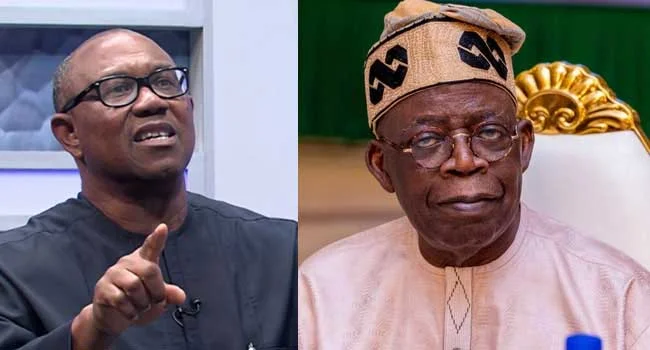President Bola Tinubu’s 10-day trip to Europe, framed by his media team as a routine annual leave, has now ignited one of the fiercest debates of his presidency. The trigger? A scathing rebuke from Peter Obi, former Labour Party presidential candidate, who declared that “no holiday is more important than the Nigerian lives you swore to protect.”
What was meant to be downtime has now snowballed into a test of leadership optics, empathy, and accountability in a nation grappling with grief and insecurity.
Obi vs. Tinubu: A War of Idea
Obi’s attack cut deep because it came against a backdrop of mounting tragedies, boat mishaps, mass abductions, and violent attacks that have left families shattered.
He questioned why a president would fly out of the country instead of standing with victims, providing immediate comfort, or even visiting communities struck by grief.
His words were more than criticism; they reframed Tinubu’s leave as a moral question: Can a president truly “switch off” when the nation is bleeding?
The Presidency’s Defence
Tinubu’s aides maintain that the trip is legitimate, planned, and partly a working vacation, with potential diplomatic and economic benefits.
Supporters argue that presidents worldwide take annual leave and that governance continues under delegated authority.
But perception, in politics, often trumps process. And in a country where many citizens feel abandoned, the image of their leader abroad resonates more like neglect than strategy.
Nigerians React
On social media, the reactions are polarizing. Some echo Obi’s anger, insisting the president should have toured affected states before leaving. Others argue that governance is bigger than photo-ops — and that what matters is the long-term delivery of security and relief.
Also Read: Sujimoto: “I’m Not a Thief,” Says Lagos Developer Declared Wanted by EFCC
But in the age of instant outrage, optics is reality. And right now, the optics are brutal.
The Bigger Picture
This controversy is not just about a 10-day holiday. It is about the fragile contract between Nigerian leaders and the people. When leaders appear absent in moments of national pain, citizens feel unprotected, and opposition voices gain moral high ground.
Whether Tinubu’s leave yields diplomatic wins or not, the political cost of being seen as absent may be far greater than any deal struck abroad.
The National Storm
Obi’s rebuke has turned a personal holiday into a national storm. And while Tinubu’s aides try to control the narrative, the question lingers in the minds of many Nigerians: if the president can leave when the people are crying, who really carries their pain?







